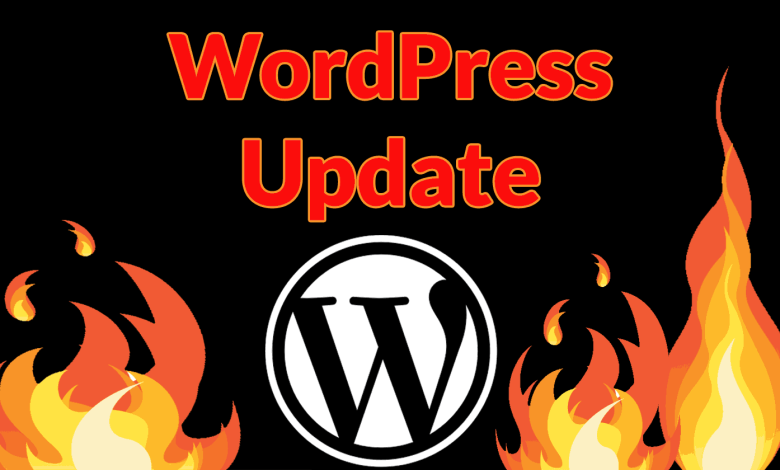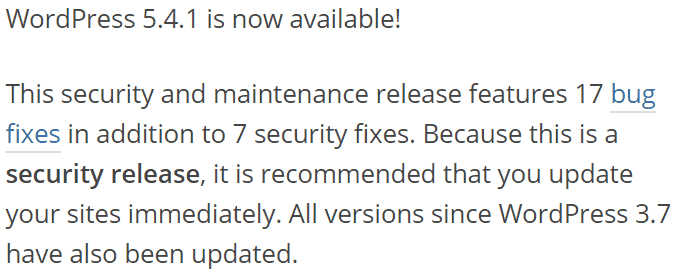
WordPress has released an update that addresses seventeen bug fixes and seven security vulnerabilities. The platform is automatically updating sites to WordPress 5.4.1.
It’s crucial to ensure that your WordPress installation is updated to version 5.4.1.
Cross-site Scripting Vulnerabilities
WordPress has patched its software to address multiple Cross-site scripting (XSS) vulnerabilities, including both XSS and Authenticated XSS.
A cross-site scripting (XSS) vulnerability allows an attacker to inject a malicious script into a vulnerable web page.
An authenticated cross-site scripting (Authenticated XSS) is the same vulnerability, but it occurs when a user is logged in. The user can range from a site member to an administrator.
XSS vulnerabilities can be exploited to attack site visitors or alter a WordPress web page. These vulnerabilities can serve as initial points of attack, paving the way for more severe attacks.
Due to this, it’s essential to stay vigilant against XSS vulnerabilities and ensure your WordPress installation is always up to date with the latest patches.
The software update was not limited to fixing XSS vulnerabilities; it addressed other types of vulnerabilities as well.

Not All Sites Automatically Updated
WordPress has announced that installations from version 3.7 and up have been automatically updated. However, installations older than version 3.7 have not been automatically updated.
The official announcement implies that versions older than 3.7 remain vulnerable, as this vulnerability affects all WordPress versions below 5.4. It is advisable to update any older installations to the very latest version to avoid known vulnerabilities.
According to the official WordPress announcement:
"This security and maintenance release features 17 bug fixes in addition to 7 security fixes. Because this is a security release, it is recommended that you update your sites immediately."
Bug Fixes
This release includes 17 bug fixes. Common bugs addressed include issues with media file uploads affecting certain browsers and fixing conflicts with some plugins, among other problems.
For more information, refer to the official WordPress announcement on WordPress 5.4.1.
More Resources
- HTTP or HTTPS? Why You Need a Secure Site
- How Does Website Security Affect Your SEO?
- Study Shows Web Security Directly Affects SEO



